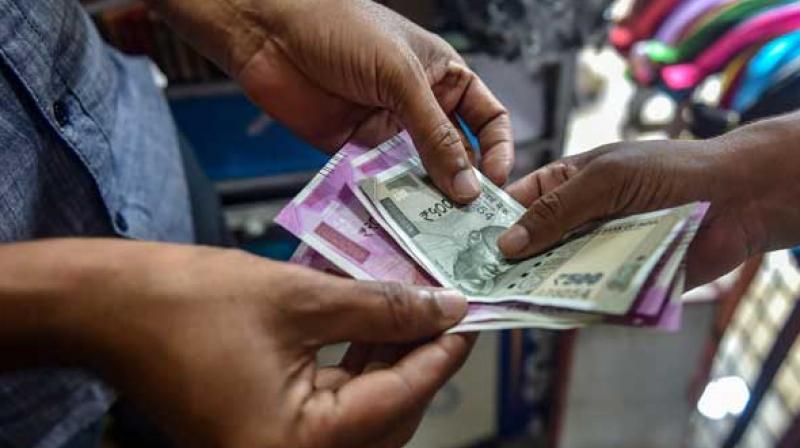Four suggestions to try during market fluctuations

A firmly interconnected world sees a dozen advancements on a regular basis, and the delicate markets are generally speedy to respond to them. Market fluctuations, no matter how unwanted it seems, could be a reality each investor must get accustomed to. The rising Indo-Pak pressure, the ongoing US-China trade battle, and the Brexit conundrum – these all had and will definitely continue to influence the stock markets directly or indirectly. But the intelligent investor must not react to these instabilities as the roller coaster stock showcase patterns. Additionally, there are a number of things you'll be able do to fortify the walls encompassing your investments to form them safe to unavoidable geopolitical disruptions.
Today, Adhil Shetty, CEO, BankBazaar.com shares some tips to make your investments stay stable during turbulence in the stock market. The Financial Express reports the points that Mr Shetty have shared as the following:-
Stay firm
A nervous and rumour-bound investment decision could be your worst choice while tackling a trembling market. Anxiety over shadows analytical thinking and leads us to make hasty choices —like hastily liquidating the investments when facing instabilities, only to repent after the markets regains later. Rising inflation, circulating public debt and increasing taxes are some of the self-evident outcome of a worst-case scenario like a war, all of which can throw the value of cash deposits.
In fact you cannot control the external factors of the stock market, but you can assess the quality of the information you receive in order to avoid anxiety. So, don’t believe in rumours, instead verify the authenticity of the news before responding to it. Having said that, staying firm during volatile times can be harder than you thought it would be, especially when it’s nearly unattainable to determine the scope and extent of their effects on your investments. So, you know what to do during market disturbances.
Check your financial goals
Your financial goals, which are the basic ground of your investments, should be the mentor to guide you through difficult times. They should be the top priority on which you should rely on to choose whether to invest in it or not.
In case you’re closing on your financial objective, like you’re just one month away from your 5-year mutual fund investment maturity, you can take redemption to spare yourself from near-term fluctuation.
Conversely, in case the maturity due date is still a couple of years away, remain firm and continue investing so that you simply provide your investments greatest time to recover. Tried-and-tested procedures like rupee cost averaging (read Systematic Investment Plans), where you invest a fixed sum at regular intervals to limit the hazard affect of a choppy market, are supportive.
Vary your investments
The plan B should be to differentiate your investments into different asset classes in order to counterbalance combined risk. This will guarantee your losses especially in an unsafe investment will get compensated for by the gains you make in another less profitable but more secure investment. As such, apportioning a portion of your assets, based on your financial objectives, to fixed income instruments like Public Provident Fund or National Savings Certificates separated from equity-linked ventures can be a secure procedure.
Further, gold has been considered a conventional hedge against inflation and gets to be a popular—at times “automatic” —investment choice amid unstable times. Whereas there’s merit in these contentions, you’d likely do well to not get overboard with gold investments, particularly after you consider the fact that the costs have remained more-or-less consistent in recent years. You'll need to distribute not more than 5 per cent of your total portfolio to gold investments.
Don’t rebalance hastily
Your introduction to debt instruments may increase when equity markets plunge in response to a worldwide turmoil. Don't surge into rebalancing your portfolio by exchanging money from debt to equity products or channelling more funds to equity instruments without considering it through, as you cannot ascertain when the markets will recover. Instead, wait for the markets to improve and after that take a call. Assurance of your investment capital is the preeminent thought amid trying times, but a savvy investor shouldn’t go over the edge with hasty choices.
(With agency inputs)

